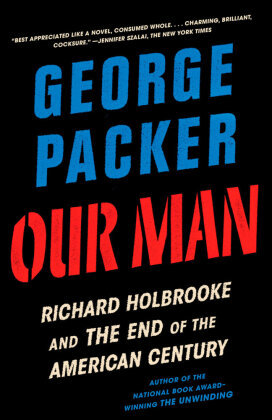
Our Man - Richard Holbrooke and the End of the American Century
| Verlag | Penguin Random House |
| Auflage | 2020 |
| Seiten | 624 |
| Format | 13,1 x 20,3 x 3,0 cm |
| Gewicht | 579 g |
| Artikeltyp | Englisches Buch |
| ISBN-10 | 030794817X |
| EAN | 9780307948175 |
| Bestell-Nr | 30794817EA |
_Finalist for the Pulitzer Prize for Biography_
_Winner of the Los Angeles Times Prize for Biography_
_Winner of the 2019 Hitchens Prize_
"Portrays Holbrooke in all of his endearing and exasperating self-willed glory...Both a sweeping diplomatic history and a Shakespearean tragicomedy... If you could read one book to comprehend American's foreign policy and its quixotic forays into quicksands over the past 50 years, this would be it."--Walter Isaacson, The New York Times Book Review
"By the end of the second page, maybe the third, you will be hooked...There never was a diplomat-activist quite like [Holbrooke], and there seldom has been a book quite like this -- sweeping and sentimental, beguiling and brutal, catty and critical, much like the man himself."--David M. Shribman, The Boston Globe
Richard Holbrooke was brilliant, utterly self-absorbed, and possessed of almost inhuman energy and appetites. Admired and detested, he was the force behind the Dayto n Accords that ended the Balkan wars, America's greatest diplomatic achievement in the post-Cold War era. His power lay in an utter belief in himself and his idea of a muscular, generous foreign policy. From his days as a young adviser in Vietnam to his last efforts to end the war in Afghanistan, Holbrooke embodied the postwar American impulse to take the lead on the global stage. But his sharp elbows and tireless self-promotion ensured that he never rose to the highest levels in government that he so desperately coveted. His story is thus the story of America during its era of supremacy: its strength, drive, and sense of possibility, as well as its penchant for overreach and heedless self-confidence. In Our Man, drawn from Holbrooke's diaries and papers, we are given a nonfiction narrative that is both intimate and epic in its revelatory portrait of this extraordinary and deeply flawed man and the elite spheres of society and government he inhabited.
